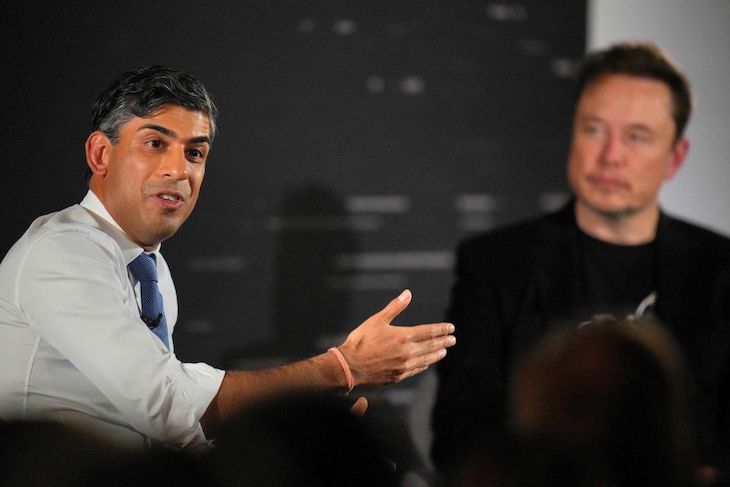PMQs began with Sir Keir Starmer’s favourite trick. He read out a sob-story intended to humiliate the government. Having outlined the woes of two unfortunate citizens, he accused Rishi Sunak of ‘refusing to take responsibility’ and of ‘boasting that everything is fine’.
The sad pawns in this prank were a teenage boy and his hard-working mother. Sir Keir even named them in the house. The young lad doesn’t go to school and his mum struggles to look after him while maintaining her job in the NHS. The pair get no help. They have no friends or neighbours, apparently. No colleagues, no relatives and no teachers to give them support. There isn’t even a boyfriend or a husband to share the load. Clearly this is an extreme case of helplessness and isolation, and their circumstances are unlikely to be improved by publicity. But Sir Keir seemed not to care either way. He quoted the mother who, rather helpfully, uses sentences that seem well suited to a Labour brochure.
The sudden fire in Rishi’s belly was a surprise
‘Whatever spin the government puts on it, you can’t hide the reality for ordinary working people.’
Is it right for him to use her troubles to rocket-boost his ambitions? He should repay this debt as soon as he can. Turning to waiting-lists, he accused Rishi of starving the NHS of funds. Rishi blamed Sir Keir for conniving at strikes that led to operations being scrapped. And he took solace in re-announcing historic acts of munificence.
‘Weeks after I became prime minister, we injected record funding’, he said, and he unfurled a new catch-phrase: ‘the long-term workforce plan.’ Only a fantasist would believe that this smooth-sounding label will fix the system. The NHS isn’t really a public service any more, it’s just a fruit machine operated by gambling addicts.
Kirsty Blackman of the SNP argued that energy bills could be reduced by making fuel more scarce. Her plan sounds appealing on the face of it: invest half a billion in ‘the transition,’ she said, and then bingo, everyone gets cheap fuel forever. That kind of logic probably goes down well in a nursery school, and it may have been devised in one. Rishi said that ‘North Sea oil’ should have a ‘starring role’ in our energy supply. And he rejected the SNP’s policy of £400 rebates for each family because, he said, he doesn’t want put resources ‘in the hands of foreign dictators.’ Perhaps he means Humza Yousaf.
Cambridge MP, Daniel Zeichner, posed an ironic question about Rishi’s recent podcast with Elon Musk. He asked what Rishi was hoping to learn from ‘an unelected super-rich individual’ who took over a thriving organisation ‘and plunged it into a death-spiral.’ This quip won guffaws aplenty from the Labour benches. Rishi snapped back with uncharacteristic passion. He spoke up on behalf of geeks and nerds everywhere. ‘This illustrates everything that is wrong with Labour’s approach,’ he cried, and he accused Zeicher of failing to grasp the importance of the tech sector ‘in Cambridge of all places.’ He said he felt sorry that the university town ‘is being so poorly represented.’
The sudden fire in Rishi’s belly was a surprise. For the bulk of the session he was happy to recite investment figures and growth forecasts like a bored middle-manager at a Friday afternoon meeting. But he caught fire as he leapt to the defence of Big Tech. The Tories picked up on his power-surge and cheered in response. ‘More!’ they chanted, ‘more, more’. The session turned into modest triumph for Rishi. But what does it mean? Inadvertently he lent weight to the theorists who believe that he’s planning to do a Nick Clegg after the election and spring from the cabinet to California. The idea that Rishi is using his time in Downing Street as a research opportunity to impress future head-hunters is rather worrying. Doubly worrying, it’s probably true.







Comments